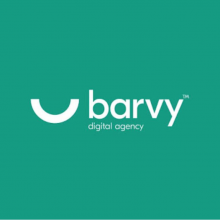
There are 23 Companies in Moldova
that provide NodeJS Development Services!
Moldova is a small country located in the Eastern European region, with a population estimated at around 2,9 million people. Now that we have made this clear, it’s time to talk about its IT industry and tech development the country will reach by the end of 2025. According to Statista, the IT Outsourcing market is expected to reach $37.8 million in 2025 with a CAGR 2025-2030 of 9.35%.
Discover Top IT Companies in Moldova specialized in NodeJS and other related services. Find the best IT service providers for your projects.
Node Js is a JavaScript runtime environment that allows developers to run JavaScript code on the server-side. Unlike traditional server-side technologies like PHP or Ruby, which are typically used for handling server tasks, Node.js enables developers to use JavaScript for both client-side and server-side development.
Handpicked companies • No obligation to hire • 100% risk-free
Featured Companies in Moldova
This month, the following NodeJS Development companies managed to provide an outstanding service and support. It's worth taking a look.
Explore Top NodeJS Development Companies in Moldova
RocketSEO is an SEO & AI-first agency from Moldova, driving global growth through SEO, GEO, AIO, AEO, smart strategy, and automation.
Services:
Digital solutions for your business! Our aim is to provide you with personalized services that meet your company's requirements.
Five Stars Digital Agency is a marketing firm with 15 years of experience in digital marketing.
Services:
Managed IT Solutions- your partner in technology -driven success
Quant Apps delivers innovative, user-focused mobile and web solutions to transform ideas into powerful digital experiences.
A company specializing in web development, branding, and digital solutions, helping businesses enhance their online presence.
Services:
Minicode is a software company from Moldova with offices in the US. We design, build, and scale Custom software, Web & Mobile Apps, SaaS, IoT, and AI.
Build your digital future with us! Software development company with proven know-how in designing innovative software solutions.
Node Sparks is a full-stack development company with 75+ projects delivered, $2M+ client revenue, and 10+ global partnerships.
Services:
Agile (Mobile & Web) Software Development
We provide 200+ IT experts, including developers, designers, managers, and analysts, from Eastern Europe for global projects.
Software Development Teams for Upscaling Business Ideas
Wippo IT develops diverse custom digital solutions for small, medium-sized and enterprise-grade businesses that streamline, automate and optimize bus...
We are focused on the development of complex software systems and mobile applications to solve IT-tasks of small and medium-sized businesses and have...
Enhance your development with a proficient team in React, Angular, Symfony, .NET, Python, and React Native.
Services:
Labs42 is a service provider for digital product development, and a partner for technology and product delivery covering the whole lifecycle of a prod...
Thrive through tech
We’re a team of designers and developers who create beautiful BRANDS and design stunning WEBSITES.
Services:
Filter NodeJS Development Companies in Moldova by Cities
Find the right tech company near you or from a specific city. Some of the best companies might be located in smaller cities.
Find more NodeJS Development companies around the world
TechBehemoths is the world's most advanced and user-friendly platform to match IT Companies with real clients without hustle.
The IT Industry in Moldova: General Overview
Moldova is a small country located in the Eastern European region, with a population estimated at around 2,9 million people. Now that we have made this clear, it’s time to talk about its IT industry and tech development the country has reached by 2025.
According to the latest statistics, which date from 2023, the country has an income worth $1.154 billion from IT services and products. According to Statista, the IT Outsourcing market is expected to reach $37.8 million in 2025 with a CAGR 2025-2030 of 9.35%. How is this possible, you would ask. There are countries with way more developed IT industry and a larger population that register fewer numbers.
It’s simple. The number of IT companies located in Moldova has increased as well, and now, in 2025, such a small country has 2300 IT companies that mostly export their services and digital products in central and western Europe. The relatively cheap workforce, which is at the same time average qualified with linguistic skills, is probably the most attractive and in demand in Europe. Speaking of languages, almost every youngster aged between 18-35 knows at least two languages: Romanian and Russian. In addition, English is extremely popular and well assimilated by the local population.
But of course, there are more reasons why you should work with a Moldovan IT company.
Why You Should Work With a Moldovan IT Company
The positive evolution of the Moldovan IT industry has also increased the visibility of local companies that create and develop digital products both for internal and external markets. Initially focused on outsourcing, Moldova has grown its startup base with multiple accelerator programs and incubators that are focused on digital.
Now, you can meet Moldovan IT companies and digital agencies all over the world, especially in Western Europe, where some of them have reached the top niche.
The transformation from agriculture to digital in Moldova is visible, and many young professionals are opting for a career in the digital network. In this way, companies here have plentiful resources for creating and developing more and more IT companies.
Another reason for working with Moldovan IT companies is the cheap prices for the quality of their digital services. The monthly average wage of a web developer in Moldova is estimated to be €650 - €3K/mo.
What to Be Aware of When Working With a Moldovan IT Company
Professional services, low prices, and a large talent pool - all these combined make Moldova probably one of the best places to work with an IT company or a web agency in Europe. But, of course, there is more to it.
Moldova’s IT industry is still in a development phase that requires resources and attention. While the European IT market is overwhelmed with companies, it seems there is not much room left after all, and many companies are not so well-known or don’t have enough visibility.
In addition to that, a potential client should also pay attention to a company’s portfolio, experience, number of employees, and hourly rate - just like in any other country, some companies perform outstanding and charge respectively, but as well as companies that have just started their road and are probably inappropriate for big projects.
How Reliable Are Moldovan IT Companies
In terms of reliability, Moldovan IT companies are generally fair, or at least reviews from real clients say so. However, project delivery delays are expected. In contrast with professional services, it should not be a problem, though, since the extra time a client has to wait is worth it. Not to mention that in Western Europe and the US, web agencies and software companies also take their time in most cases to deliver a digital service or product.
How Does the Moldovan IT Industry Relate to the Neighboring Countries?
With Ukraine and Romania as neighboring countries, Moldova is already out of the competition in terms of IT infrastructure. However, the field of Information and Communication doesn’t know physical boundaries, and local software companies don’t seem to have problems with finding new partnerships and contracts.
The government's support policies are also a helping hand for the industry’s development - there are two IT parks already, which charge 0% VAT for employees and only 7% for companies. This stimulates companies and professionals to choose a career in IT and develop the industry.
What is NodeJS and what are its benefits for your projects?
Node Js is a JavaScript runtime environment that allows developers to run JavaScript code on the server-side. Unlike traditional server-side technologies like PHP or Ruby, which are typically used for handling server tasks, Node.js enables developers to use JavaScript for both client-side and server-side development. Below we’ll dive deeper into the types of projects built with it, and how companies can leverage it for their projects:
Node.js is built on the V8 JavaScript engine from Google, making it incredibly fast and efficient. It uses an event-driven, non-blocking I/O model, which makes it ideal for building scalable and real-time applications. Node.js is particularly well-suited for projects that require high concurrency, such as web applications, APIs, chat applications, streaming services, and more. It has a large and active community, which has led to a rich ecosystem of libraries and packages available via npm (Node Package Manager), simplifying development tasks.
As for the type of projects that can be built using Node.js, we can name the following:
- Web Applications: Many web applications are built using Node.js, often using web frameworks like Express.js. These applications can range from small personal websites to large-scale, enterprise-level platforms.
- APIs (Application Programming Interfaces): Node.js is commonly used to create RESTful APIs that allow different services or applications to communicate with each other. This is essential for building services that provide data to mobile apps, websites, and other clients.
- Real-time Applications: Node.js is favored for real-time applications, such as chat applications, online gaming, and collaborative tools. The event-driven architecture of Node.js is well-suited for handling multiple concurrent connections.
- Streaming Services: Media streaming platforms and services that deliver audio and video content use Node.js to efficiently manage and serve media files to users.
- IoT (Internet of Things): Node.js is used in IoT projects to handle data collection from sensors and devices, process that data, and communicate with cloud services.
- Serverless Functions: Node.js is a popular choice for building serverless functions or AWS Lambda functions due to its lightweight and quick startup times.
Node.js is a versatile technology that can be effectively utilized in both smaller and larger projects, but its suitability hinges on several key factors.
For smaller projects, Node.js offers distinct advantages. Its event-driven, non-blocking I/O model allows developers to rapidly prototype and develop applications. This makes it an excellent choice for creating functional prototypes, minimum viable products (MVPs), or simple web tools swiftly.
Node.js's efficiency in handling I/O operations can lead to responsive user experiences, which is valuable for small-scale applications like personal websites, blogs, or straightforward web tools. Moreover, Node.js itself is lightweight, making it suitable for projects with minimal hardware or resource requirements. It doesn't impose significant overhead, making it a cost-effective option.
Node.js is also well-suited for serving as a backend for Single-Page Applications (SPAs), handling API requests, and serving static files efficiently. Its ability to use JavaScript both on the server and client sides can reduce development costs by enabling code reuse and a single development skill set.
For larger projects, Node.js remains a compelling choice for various reasons. Its ability to handle a large number of concurrent connections positions it favorably for projects with high traffic and user loads. It's designed to scale efficiently, allowing it to distribute workloads across multiple servers or containers, making it scalable and robust.
In larger applications with complex functionality, Node.js can be employed to build microservices that communicate efficiently with each other. This modular approach enhances maintainability and facilitates development on a larger scale.
Node.js's event-driven nature also makes it an ideal candidate for larger projects requiring real-time features. It excels in managing multiple simultaneous connections, making it suitable for applications such as messaging platforms, online gaming, or collaborative tools.
Additionally, Node.js continues to offer development speed advantages regardless of project size, which can be particularly valuable in meeting tight project deadlines.
Furthermore, for larger projects with JavaScript as the primary language on both the frontend and backend, Node.js facilitates streamlined development processes, code sharing, and collaboration among teams working on different parts of the application.






















